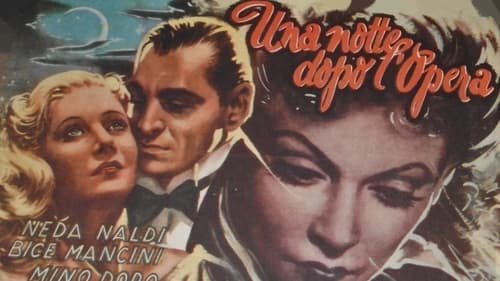Umberto Giordano
Nacimiento : 1867-08-28, Foggia, Puglia, Italy
Muerte : 1948-11-12

Music
Umberto Giordano’s exhilarating drama returns to the Met repertory for the first time in 25 years. Packed with memorable melodies, showstopping arias, and explosive confrontations, Fedora requires a cast of thrilling voices to take flight, and the Met’s new production promises to deliver. Soprano Sonya Yoncheva, one of today’s most riveting artists, sings the title role of the 19th-century Russian princess who falls in love with her fiancé’s murderer, Count Loris, sung by star tenor Piotr Beczała. Soprano Rosa Feola is the Countess Olga, Fedora’s confidante, and baritone Artur Ruciński is the diplomat De Siriex, with much-loved Met maestro Marco Armiliato conducting. Director David McVicar delivers a detailed and dramatic staging based around an ingenious fixed set that, like a Russian nesting doll, unfolds to reveal the opera’s three distinctive settings—a palace in St. Petersburg, a fashionable Parisian salon, and a picturesque villa in the Swiss Alps.

Original Music Composer

Compositors
“Kaufmann is performing the title role for the first time, and it’s hard to imagine him bettered. His striking looks make him very much the Romantic and romanticised outsider of Giordano’s vision. His voice, with its dark, liquid tone, soars through the music with refined ease and intensity: all those grand declarations of passion, whether political or erotic, hit home with terrific immediacy.” – The Guardian Presented in its Covent Garden premiere in January 2015, this staging – directed by David McVicar and conducted by the Royal Opera’s Music Director, Sir Antonio Pappano – shows a bloody tricolour daubed with the words “Even Plato banned poets from his Republic” – written by Robespierre on the death warrant of the historical Chénier, a poet and journalist sent to the guillotine in 1794 for criticising France’s post-revolutionary government.

Music
Based on Rosetta Cucchi’s new staging of Umberto Giordano's Fedora at Teatro Carlo Felice, Ipanov bears witness to incessant survivor guilt, unable to escape restless remembrances of his ill-fated family and strongest regrets – betrayal, disgrace, loss and abandonment.

Original Music Composer
Hector Sandoval, Norma Fantini, Scott Hendricks, Tania Kross, and Rosalind Plowright star in this production of the Giordano opera performed by the Vienna Symphony, Bregenz Festival Chorus, and Prague Philharmonic Choir conducted by Ulf Schirmer.

Original Music Composer
Princess Fedora, who is to marry the Count the following day, arrives and sings of her love for him, unaware that the dissolute Count has betrayed her with another woman. The sound of sleigh-bells is heard, and the Count is brought in mortally wounded. Doctors and a priest are summoned, and the servants are questioned. It is proposed that Count Loris Ipanov, a suspected Nihilist sympathiser, was probably the assassin. De Siriex (a diplomat), and Grech (a police inspector) plan an investigation. Fedora swears on the jewelled Byzantine cross she is wearing that Count Andrejevich's death will be avenged.

Compositors
This live from the Met telecast from October 1996 of Giordano’s infrequently performed verismo gem is an absolute pleasure to watch and listen to and I highly recommend it. Nicholas Joel’s production is extremely elegant while at the same time being simple and uncluttered. Act I, for example, is dominated by an enormous gilt-framed mirror precariously tilted. I assume that it is a metaphor for the imminent downfall of the decadent aristocracy at the party given by the Contessa di Coigny. The costumes designs by Hubert Monloup are terrific. The prerevolutionary costumes in Act I are simply stunning each one individually tailored for the choristers and major performers.

Original Music Composer
Live from La Scala Saturday 06 July 1985

Original Music Composer
Live from ROH 1985. Giordano's Andrea Chenier is one of the greatest of verismo operas, full of heart-stopping big tunes and powerful emotional situations. If it is not as well-known as it should be, it is because in summary it sounds a little too like Puccini's Tosca: there is a tussle between political opponents over a woman, an attempt to save a condemned man, a tenor aria about writing poetry on the eve of execution. The difference is that Gerard (Giorgio Zancanaro) is not a villain like Scarpia, he is an idealist whom the French Revolution has betrayed as much as it has his rival the poet Chenier (Placido Domingo). His temptation to abuse his power to seduce the virtuous Maddalena (Anna Tomowa-Sintow) is a momentary one, though its consequences are terrible. There is a streak of post-Wagnerian decadence in much of this--Maddalena is at least as much in love with death as she is with Chenier, and the final love duet has a deeply sinister aspect. -- From Amazon.co.uk

Music
France, 1792. Chenier is an idealistic poet, in love with the aristocratic Maddalena. While Chenier supports such notions as "liberte, fraternite egalite," his sympathies do not extend to the current Reign of Terror. Likewise, the Revolutionary Tribunal has no need for poets or their girlfriends, especially those judged to be an Enemy of the State. Heads will roll.

Compositor
Renowned tenor Mario Del Monaco sings the lead in this production of Umberto Giordano's opera based on the life of French poet Andrea Chénier. With his unique vocal technique, Del Monaco brings a vibrant power to the title role, matched by complex and charismatic performances from Antonietta Stella as Chénier's beloved Maddalena and Giuseppe Taddei as the tragic Gérard in this sweeping tale set against the backdrop of the French Revolution.

Conductor
This film relates the story of Russian Princess Fedora (Louise Ferida), in Czarist times, whose royal lover is assassinated on the eve of their marriage. She pledges vengeance, only to become the victim of her vow when she falls in love again.

Original Music Composer
This film relates the story of Russian Princess Fedora (Louise Ferida), in Czarist times, whose royal lover is assassinated on the eve of their marriage. She pledges vengeance, only to become the victim of her vow when she falls in love again.

Music









